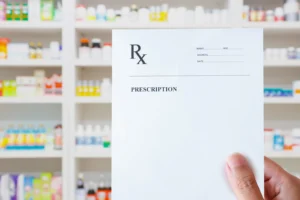In the realm of healthcare, figuring out the route between diagnosis and treatment can occasionally feel like navigating a maze. When you do not feel well, you visit a pharmacy to fill the prescriptions given by the doctor.
Despite the apparent overlap between their responsibilities, a key issue arises whether pharmacies really hire medical doctors as part of staff.
Recognizing the responsibilities of physicians and pharmacists not only sheds light on the current evolution of the healthcare business, but it also emphasizes how teamwork shapes patient care.
This article examines the staffing arrangements of pharmacies to help you establish the critical connection between prescription drugs and professional medical advice.
Standard Pharmacy Staffing

Pharmaceutical Services
Pharmacists
One of the most crucial responsibility of pharmacists is the safe and efficient usage of drugs. Not only are they in charge of prescribing prescriptions, but they are also specialists in drug therapy. They offer advice to patients on how to take prescription appropriately and spot any drug interactions. They work in collaboration with doctors to adjust drug regimens and keep an eye out for any negative side effects. Pharmacists make a major contribution to better health outcomes and fewer medication errors by making sure patients understand their prescriptions.
Technicians
The backbone of pharmacies consists of technicians who collaborate with pharmacists to guarantee precise and effective drug delivery. Their responsibilities include precisely measuring, packing, and labeling prescription drugs under the direction of a pharmacist. Additionally, they significantly improve drug delivery by providing basic pharmaceutical information and overseeing pharmacy inventory. Their excellent organizational abilities and high attention to detail are essential for preserving a secure and efficient pharmaceutical operation.
Customer Service/Cashier
Pharmacy cashiers and customer service agents are key to making sure patients have a seamless and enjoyable experience. They manage transactions, check the accuracy of prescriptions, and respond to inquiries concerning over-the-counter drugs. Their effectiveness keeps the pharmacy operating efficiently, and their approachable manner and capacity to handle issues may have a significant impact on how well patients manage their health.
Why Pharmacies Do Not Have Their Doctors
Legal Restrictions
The legislative limitations does not allow pharmacists to practice medicine as full-fledged doctors, despite their education levels and extensive understanding of drugs. The law authorizes doctors or physicians to diagnose conditions and prescribe drugs under the terms of their license, which is an essential step in the therapeutic process. Conversely, it requires pharmacists to guarantee safe medicine usage and supply prescription drugs based on a physician’s order. This legal distinction guarantees that a correct diagnosis comes before the administration of medicine, maintaining a clear division of responsibilities within the healthcare system.
Focus of Pharmacies
Within the healthcare system, pharmacists and physicians have fundamentally distinct roles to play. Pharmacies are experts in dispensing prescription drugs and pay close attention to inventory control, accuracy, and logistics. Although they have extensive training in pharmacology, pharmacists are not medical doctors; rather, their specialty is the complexities of pharmaceuticals. On the other hand, physicians identify illnesses, suggest courses of action, and sometimes write prescriptions for drugs. Their training programs emphasize on In-depth knowledge of disease processes, patient exams, and general health care. While modest health checks and consultations are becoming more common in some pharmacist professions, diagnosing and managing treatment plans still fall outside their area of expertise.
The Rise of Collaborative Care
Positive changes are occurring in the healthcare sector with regard to pharmacists and doctors working together to provide treatment. This collaboration leverages the special advantages of each profession. While pharmacists have in-depth knowledge of pharmaceuticals, their interactions, and their adverse effects, doctors diagnose diseases and prescribe treatments. Together, they can guarantee that patients get the safest and most effective regimens. The goals of this cooperative approach enhance adherence to treatment programs, decreasing prescription mistakes, and improving patient outcomes. This effective team-based approach to healthcare is becoming more necessary as drug therapy becomes more sophisticated.
The future of pharmacists is likely to shift from medication dispensing to a more patient-centered approach. Imagine pharmacists utilizing technology for refills and streamlining processes, focusing on medication adherence, chronic disease management, and preventive care. This expanded role will require expertise in new areas like genomics and digital therapeutics, making pharmacists valuable partners in a healthcare landscape focused on wellness and managing complex conditions.
Although pharmacies typically employ licensed pharmacists with in-depth medication knowledge, they do not have medical doctors with diagnostic or prescriptive authority. However, the healthcare landscape is evolving, and some pharmacies are integrating with clinics or offer medication management services in collaboration with physicians. This trend suggests a future where pharmacies play a more prominent role in comprehensive patient care, potentially including on-site consultations with healthcare professionals.




